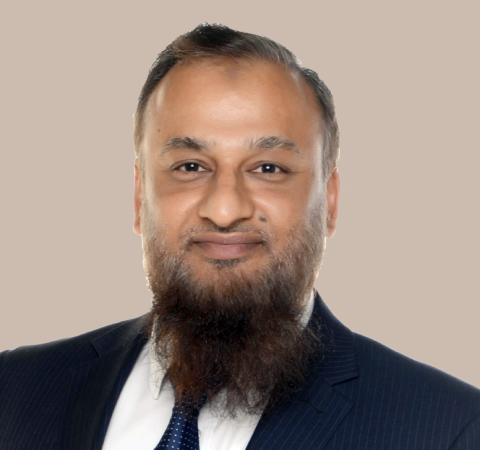Dr Rehan Ahmed
Rehan Ahmed
- Job title
- Associate Professor
- r.ahmed@hw.ac.uk
- Role
- Associate Professor
- Section
- School of Engineering & Physical Sciences
- r.ahmed@hw.ac.uk

About
Dr Rehan Ahmed is the Associate Director of Research in the School of Engineering and Physical Sciences. He joined the Edinburgh Campus of Heriot-Watt University in 1999 and has since held various academic roles in the Edinburgh and Dubai campuses. His previous employments have been at the University of Cambridge, UK; Brunel University, UK and Alfaisal University, KSA. His professional experience covers both ABET and IMechE systems of higher education accreditation.
Dr Rehan Ahmed prides himself in working with funding authorities and industrial clients to perform applied research that is based on critical thinking and established science so that tangible benefits are realised.
Biography
Dr Ahmed leads multidisciplinary research in the design of engineering systems with an emphasis on surface engineering of interacting surfaces. His research aims to improve engineering systems' design, performance, durability and efficiency, involving aspects such as mechanics, dynamics, manufacturing, nanotechnology, biotechnology and energy. All engineering systems; ranging from computer hard disks, gas turbines, power generation and transportation to human joints, rely on interacting surfaces and interfaces in relative motion at macro- micro- and nano-scales. There is, therefore, a great deal of diversity in the industrial applications of Dr Ahmed's multidisciplinary research, which cuts across the disciplines of mechanical engineering, materials science, manufacturing and surface physics. Some of the industrial applications of his research include solid mechanics and surface engineering of components used in the tribology of MEMS/NEMS devices; off- and on-shore engineering components; biomedical devices; aerospace components; and both renewable and non-renewable energy sectors.
Publications
Dr Rehan Ahmed has authored more than one hundred refereed publications in seminal scientific journals and international conferences. He has successfully secured more than twenty competitive research grants with value in excess of £2.2 million (≈ $3.6 million) from Industry and Research Councils. The nature of these research grants has varied from individual projects on particular aspects of engineering systems to infrastructure grants enabling long-term research development across various research groups. International and national research collaborations established as part of these research projects continue to serve and benefit the consolidation and evolution of his research. Dr Ahmed's research continues to secure intellectual property, and two patents were recently granted on novel surface coatings for biomedical implants and Solid Oxide Fuel Cells.
In recognition of his internationally leading research, Dr Rehan Ahmed was featured in the "Global pioneers" theme of Heriot-Watt University in 2016. The Global Pioneers include some of the University's staff who are leading researchers and educators/scholars who illustrate Heriot-Watt's role in thought leadership and impactful learning and research.
Dr Rehan Ahmed is a member of the peer-review college of EPSRC (Engineering and Physical Sciences Research Council), which is the UK's prime research council in the field of engineering and physical sciences. He also serves on the Editorial Boards of the Journal of Thermal Spray Technology (JTST) and Advances in Mechanical Engineering. He was also the Guest Editor for the special issue of JTST on i) Nanocomposite coatings and ii) Biomaterials. He has been the External PhD Examiner for several Universities. He frequently leads Industrial Consultancies based on his research expertise, and some of his clients have included BBC Scotland, Raytheon Systems and Weatherford International. He also contributed to the ASM handbook on Failure Analysis and Prevention. He has been the recipient of the Best Paper Awards from the ASME Journal of Tribology in 2010 and the International Thermal Spray Conference organised by ASM (USA) in 2001.